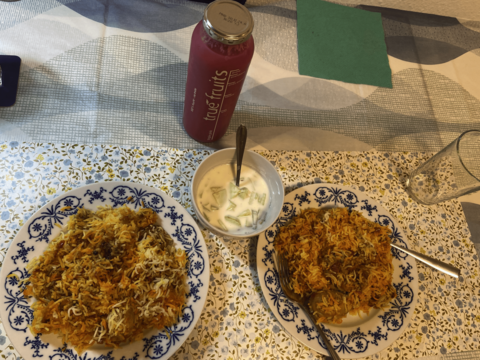06.12.2024 • Mandy
How Students Can Integrate More Easily In Germany Through Local Activities
Have you ever wondered what the best way is to integrate into life in Germany as a student? Are you working on your German and feeling overwhelmed by your study load? Are you feeling so stuck that you don’t want to get involved in any activities outside of university? The advice below will come in handy, especially during your first 6 months in Germany.
1. German Speaking Clubs
When you are in Germany, the quickest way to integrate is to speak German. As a student, your program likely provides 2 to 3 free German language sessions per week. If you feel that this is not enough, German-speaking clubs can be very helpful. You can join offline clubs in your area, such as BlaBla Language Exchange or Mundo Lingo, or online platforms like Meetup or Expat.info (a worldwide community network for German-speaking expats). In Bamberg, where I am studying, Freund statt fremd’s Deutschkurs für Frauen offers free speaking classes every week.
2. Local Traditional Activities
Don’t panic if you are a beginner in German. There are expat communities in almost every city in Germany where events are organized in English. You’ll meet internationals from all over the world, and it’s a great opportunity to connect and share experiences about life and studies as expats. On special occasions like Halloween and Christmas, you can join activities such as pumpkin carving, painting, decorating, and visiting winter markets. Some popular expat communities include Girl Gone International, InterNations, and Couchsurfing.
3. Hobby-Based Activities
Depending on your interests, you’ll always find communities and activities to participate in. Many universities offer a wide range of sports clubs and hobby-based groups. For example, at Bamberg University, there are over 50 sports clubs you can join at a low price. Dormitories also often organize social events, such as Halloween costume parties, movie nights, and running clubs. Outside the university, there are international book clubs, dance classes, hiking groups, and even karaoke nights—all at an affordable cost. Be sure to plan ahead so that you can balance your study tasks with your leisure activities.
4. Cooking for Friends
Eating out can be expensive, especially if you haven’t found a mini-job or working student position yet. Cooking at home not only saves money, but it also gives you the chance to invite friends over, share meals, and exchange cultural experiences. Involving your friends in the cooking process can strengthen your relationships, expand your social network, and help you integrate better into German culture. You can find tips on how to make traditional dishes using ingredients from German supermarkets .
Studying in Germany becomes easier when you know how to balance your academic and social life. The country is known for being international student-friendly, and there are plenty of low-cost, engaging activities both inside and outside the academic environment. The guide above is applicable to most cities in Germany. I hope you find it useful, and please let us know how these tips help you integrate better into life in Germany.


